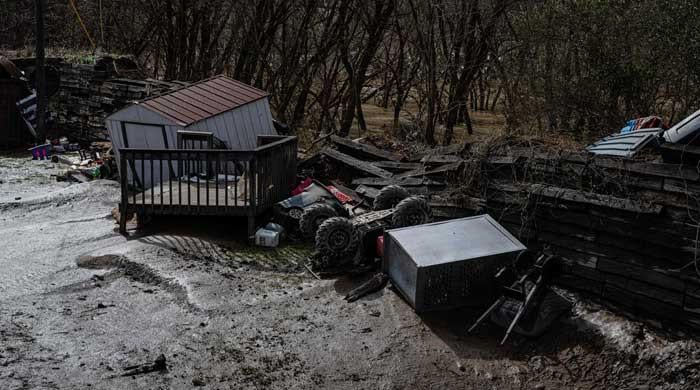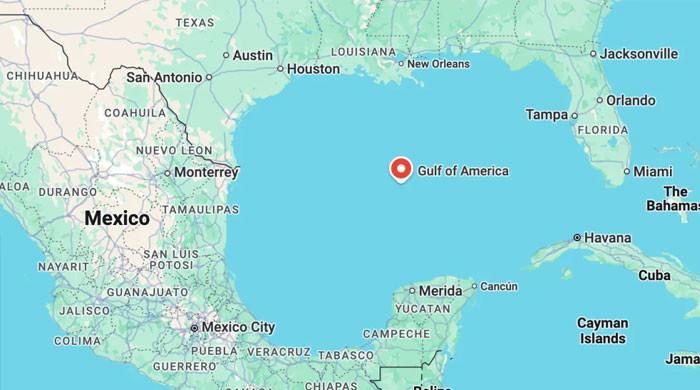What caused record-breaking rainfall in UAE?
Officials send students for e-learning, employees home as weather is expected to exacerbate in UAE
April 17, 2024
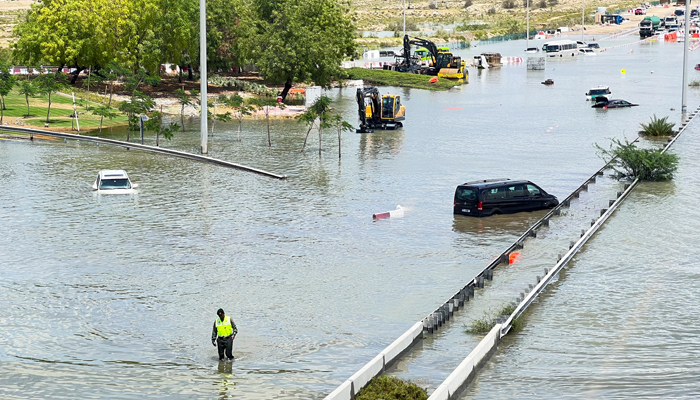
The government in the United Arab Emirates (UAE) has issued a weather warning for Wednesday citing the severe weather conditions as the gulf nation witnessed thunderstorms and lightning for a continued three days.
The officials also directed schools and government employees to stay home and only leave their house premises when extremely necessary, as the weather is expected to exacerbate.
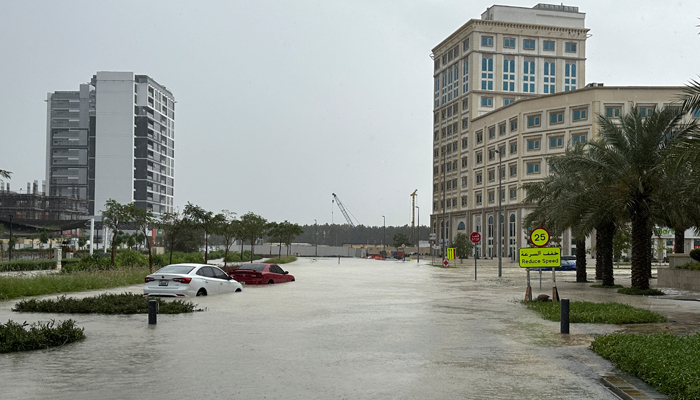
According to Khaleej Times reports, the record-breaking rainfall Tuesday prompted rescue operations as there was urban flooding in the major parts of the country including Dubai and Sharjah halting the activities of daily life.
It also forced major highways to close down and disrupted airport operations and other means of transportation.
The outlet reported that the rains broke 75 years of record since data collection began in 1949.
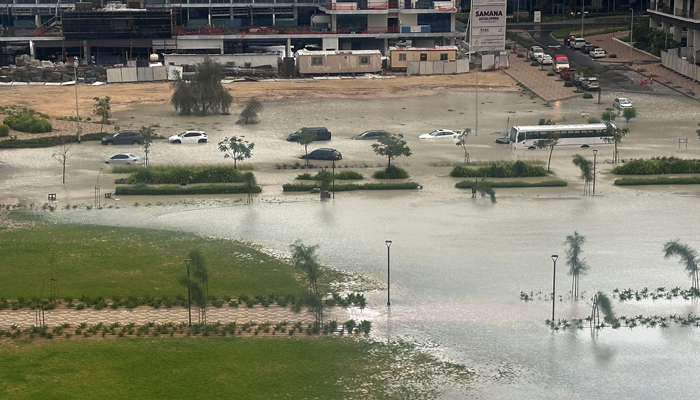
The highest rain was recorded in the Khatm Al Shakla area in Al Ain, reaching 254mm in less than 24 hours, it reported.
In 2016, the National Centre of Meteorology said the Shuwaib station recorded 287.6 mm.
The annual rainfall in the UAE is estimated between 140 to 200mm as due to the desert area, the downpours are scarce.
Several homes, shopping malls, and villas in Dubai and Sharjah witnessed water logging with power cuts and internet blackouts.
Why has it rained so heavily in UAE?
Reports from Sky News and Reuters claimed that there had been a cloud seeding and burning special salt flares in the Middle Eastern country with Bloomberg saying that the process took place days ahead of the record-breaking rains in the UAE.
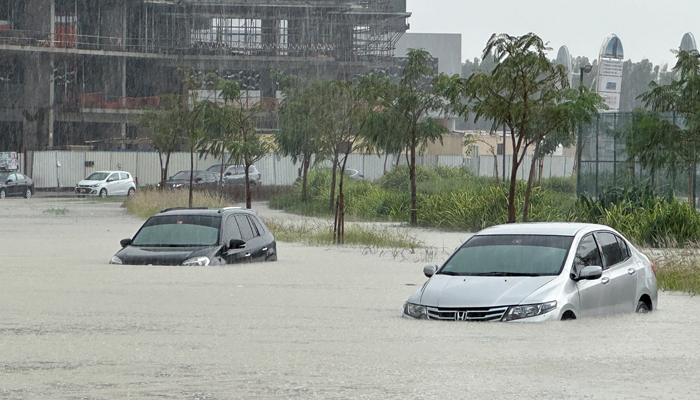
According to climate scientists, the extreme weather conditions are coming up because of the climate change.
Bloomberg report claims that "one aircraft linked to the UAE's cloud seeding efforts flew around the country Sunday".
Since the UAE relies on desalinated water resources, cloud seeding is important to beef up its decreasing groundwater reservoirs.
But it is not solely the case, as Omar AlYazeedi, deputy director general of the NCM told CNBC that there were no seeding operations before or during the storm.
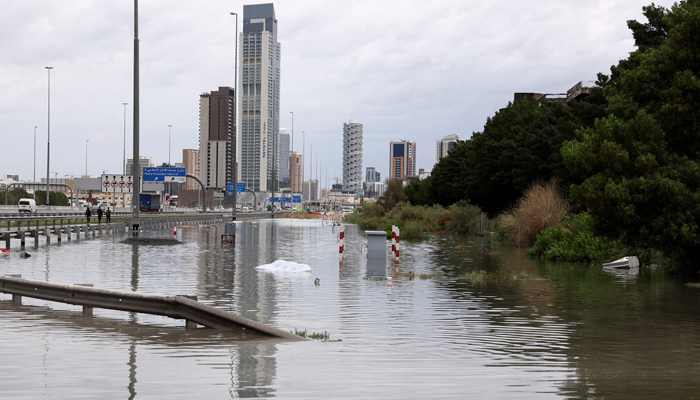
He maintained: "One of the basic principles of cloud seeding is that you have to target clouds in its early stage before it rains, if you have a severe thunderstorm situation then it is too late to conduct any seeding operation."
A weather producer Chris England associated with Sky News also rejected the cloud seeding as a cause behind storms and blamed climate change for such flooding.
He also said the infrastructure was not appropriate to handle such magnitude of downpours.
Due to the same weather system in the Arabian Sea, it also entered Oman and wreaked havoc killing nearly two dozens people.





